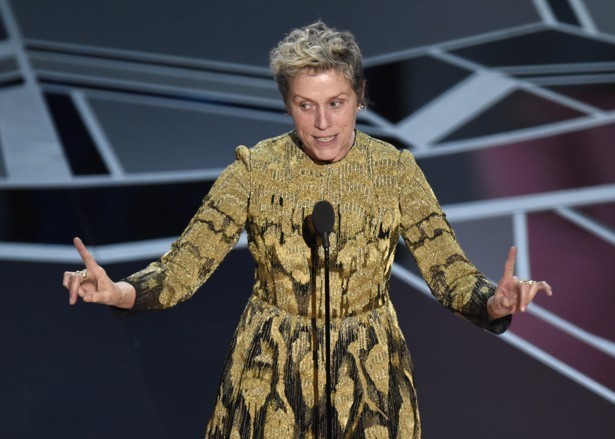Oscars honor universal language of film
The 90th anniversary a mix of politics and theatrics
The 90th anniversary of the Academy Awards continued its legacy of strong political movements, but had a more positive approach and attitude towards them than in previous years.
From the start, Jimmy Kimmel addressed the issue of sexual harassment and assault that Hollywood has not taken seriously.
Jokingly Kimmel noted how well respected “Oscar” was, motioning towards the life size trophy on stage. Kimmel pointed out how he kept his hands where everyone could see them, and more importantly, his lack of male genitalia.
Throughout the night, the diversity of Hollywood was celebrated, instead of the usual anger at the lack of representation. That is not to say that many groups don’t have a right to be angry, but at some point it is nice to look at the progress that has been made, and the great pioneers in the movie industry.
Both the stage and the audience seemed to lack the household names we’re used to such as Ben Affleck, Leonardo DiCaprio and George Clooney.
Instead, the headlines were filled with stories like Frances McDormand’s powerful acceptance speech for her leading actress role as Mildred Hayes in “Three Billboards Outside Ebbing, Missouri.”
McDormand set down her Oscar and requested all the women nominated for an award to get up out of their seats. As they rose, some more reluctantly than others, they received an ovation from the crowd.
“We all have stories we need to tell and projects we need financed,” Mcdermond said, sparking an even larger round of applause.
She finished her speech with a phrase unfamiliar to most watching at home. “I have two words for you: inclusion rider,” she said.
For those who did not immediately ask Siri, “What’s an inclusion rider?,” I can help you out. An inclusion rider is a clause that an actor can put in their contract before signing, ensuring that a certain level of diversity is met for both the cast and the behind the scenes workers.
The premise of the clause is to make the cast reflect the reality of the demographics of the world. In practice an inclusion rider would create an accurate depiction of the amount of women, LGBT, racial minorities, religious minorities, and other groups often overlooked.
This level representation seemed to be met, if not exceeded, by the choice of presenters and performers.
Exciting renditions of nominated songs were given by a racially diverse group of singers. R&B singer Andra Day shared the stage with Chicago rapper, Common, for a performance of the “Stand Up For Something” from the the film “Marshall,” which was especially meaningful this night.
Keala Settle, known for her impressive Broadway career, sang “This is Me” from “The Greatest Showman,” and Mary J. Blige performed the soulful “Mighty River” written for the movie “Mudbound.”
Arguably the best song of the night was the emotional “Remember Me,” from Pixar’s “Coco,” by multiple artists of Latin decent.
“Coco” also took home the award for best animated film. Unlike the majority of Pixar films that aim to be as universal as possible and have no determinable setting, “Coco” drew crowds by going the opposite direction.
The movie is filled with the culture of Mexico and is undeniably different from its competition. It’s authenticity and representation of faces not usually depicted in popular animated films is what led to its success.
Taking another step forward for groups typically underrepresented in Hollywood, Daniella Vega became the first openly trans actress to present an award. Her movie, “A Fantastic Woman,” also won the award for best foreign film.
Jordan Peele, known for his comedy sketch group “Key and Peele,” won best director for his horror-thriller “Get Out,” which was not only a pop culture phenomena but also a movie about racism, capturing the nation’s attention.
Not in conjunction with the rest of the night’s tone, women nominees still fared poorly in categories with both genders. The female dominated film “Lady Bird” did not win any of the five categories it was nominated for, despite holding a perfect 100% rating in Rotten Tomatoes.







































